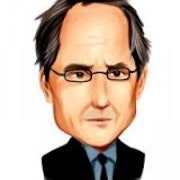We track 13F filings from hedge funds and other notable investors in our database, aiding us in our work developing investing strategies (we have found, for example, that the most popular small cap stocks among hedge funds generate an average excess return of 18 percentage points per year). We can also look at individual filings to see top managers’ favorite stocks in a number of categories, including stocks which pay substantial dividend yields, as a way to provide initial ideas which investors can research further if they like the company’s prospects. Here are billionaire David Shaw’s hedge fund D.E. Shaw’s five largest positions as of the end of December in stocks which pay dividend yields of 3% or higher (or see the full list of D.E. Shaw’s stock picks):
The fund nearly doubled the size of its position in Occidental Petroleum (NYSE:OXY) between October and December, closing out the year with 3.9 million shares in its portfolio. Like many oil majors, Occidental currently carries fairly low earnings multiples though its trailing P/E of 14 actually represents a premium to competitors such as Exxon Mobil and Chevron. Occidental pays a dividend yield of 3.1%, though of course the company’s fortunes do depend on oil prices (and therefore, to some extent, on macro activity).

General Electric (NYSE:GE) was another of the fund’s favorite stocks according to the 13F. The company did not experience much growth in 2012 as a whole, though in Q4 it did experience somewhat stronger financials than in the fourth quarter of 2011. GE pays a dividend yield of 3.3%, though we’re a bit skeptical as to whether or not it is a value stock at a trailing P/E of 18. Fisher Asset Management, managed by billionaire Ken Fisher, owned over 30 million shares of GE at the end of 2012 (find Fisher’s favorite stocks).
The filing disclosed ownership of 4.4 million shares of JPMorgan Chase & Co. (NYSE:JPM), up significantly from what D.E. Shaw had owned at the end of September. The megabank looks interesting in value terms, trading at 9 times trailing earnings and at 0.9 times the book value of its equity (though a number of other large banks are similarly priced on either front). Financial performance has been strong recently as well, and so we’d say that JPMorgan Chase & Co. (NYSE:JPM) is well worth looking at as a value stock even without considering a yield of just over 3%.
D.E. Shaw added a small number of shares of Pfizer Inc. (NYSE:PFE) and had 7.6 million shares of the drug manufacturer in its portfolio. The dividend yield is fairly high at 3.3%, but for a large pharmaceutical company Pfizer Inc. (NYSE:PFE) actually has quite a bit of exposure to the broader economy with a beta of 0.8. While certainly not that dependent on market indices, defensive investors might want to look elsewhere. Pfizer Inc. (NYSE:PFE) carries trailing and forward P/Es of 15 and 12, respectively, so the company does need to grow its earnings from this point in order to be a good value.
As a result we aren’t sure that Pfizer Inc. (NYSE:PFE) or Occidental are that attractive compared to their peer companies. The same might be true of Philip Morris- pure income investors can find better yields elsewhere in the industry- though it might be worth considering the possibility that Philip Morris has more growth opportunities than its competitors. JPMorgan Chase & Co. (NYSE:JPM) is actually a prospective value stock, as can be seen by its earnings and book value metrics.
Disclosure: I own no shares of any stocks mentioned in this article.